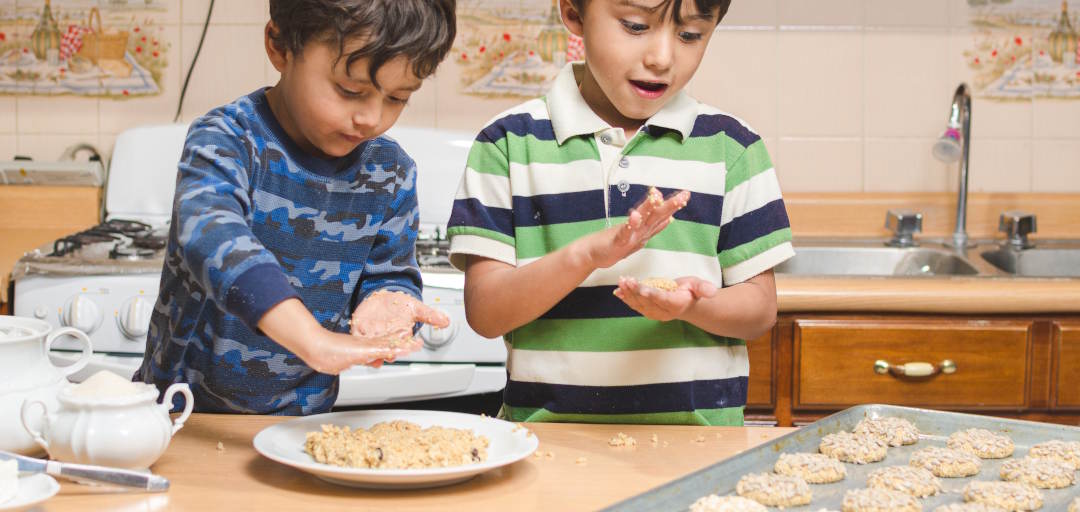As your kids grow, it’s important to encourage them to act independently. It helps increase their self-confidence and provides them a feeling of control. Independent children are often self-motivated and eager to face new challenges. Raising independent children requires parents to be intentional in providing opportunities for independence. Here’s some easy ways to encourage them to become independent.
Encouraging your child to be independent by:
- Invite them to help with your activities – A great opportunity to give your child a chance to practice their independence is by allowing them to help you with a task or activity. By allowing them to help you, you can monitor what they are doing and you can help at any time that they need it. Activities like cooking are great to do together, and will teach them a much-needed skill. When they’re familiar with your usual jobs, ask them to do some things for you! (You don’t have to do everything for them)
- Allow them to make mistakes – Understand that as they learn to be independent, they will make mistakes. It is important to always let them know that mistakes are okay, and are a natural part of learning. As they learn, you might be compelled to step in if you see them struggling, but you should resist the urge to intervene; during moments of frustration, a child can learn the importance of pushing through to overcome obstacles. This helps them develop grit. When they push through and, successfully, complete a task or activity they will be proud of themselves and feel accomplished.
- Give them choices – Children want to be able to feel as though they have autonomy. By giving them choices, they can exercise that control. Allowing them to choose will cut down on power struggles, and frustrations.
- Let them figure out solutions to their problems – Undoubtedly, your child will encounter situations that are difficult to navigate. Give them the encouragement to think through the possible solutions and allow them to figure out how they want to handle the situation. With your guidance, they will be able to make good choices that will help them realize that they can solve problems & resolve conflicts.
- Allow them time for unstructured play – Whether your child is 1 or 10, it is important for them to play and explore on their own. Provide them with plenty of opportunities to just be a child. They can use their imaginations and creativity.
- Praise their efforts – When you see your child learning a new task, or taking initiative you should encourage the effort they are exuding. By praising their effort, rather than the result of whatever it is they are doing, you are helping them to learn that trying your best and working hard is the valuable skill.
- Let them get “bored” – Children are constantly inundated with activity. Whether it is screen time, extracurricular activities, or school work, they are always busy doing something. Allowing your child to not have anything scheduled for them to do, and encouraging them to let go of their screens, will provide them with opportunities to become “bored”. Many children will struggle with not having an activity to focus on at first, but over time they will find creative ways to keep themselves entertained. Through discovering activities that they, genuinely, enjoy they will gain independence and confidence.
‘Children need to sit in their own boredom for the world to become quiet enough that they can hear themselves’ – Dr Vanessa Lapointe
Why is it important to encourage independence?
As a parent, you want what is best for your child. You want them to be happy and successful. This desire can, often, lead to parents not allowing their children to experience frustration, or any hardship. Parents can step in and help their child with various tasks because they want to care for them, and protect them. While this is well-meaning, it can lead to a child feeling insecure, or stifled. By encouraging independence, children gain self-confidence, and they understand that they have control over themselves. By feeling a sense of control, children feel more capable of handling tough situations and making good choices. Here are some other examples of why it is important to encourage independence:
- Prepares your child to handle tough situations – Throughout their independence journey, they will make mistakes. You have prepared them to handle these situations by reinforcing the idea that mistakes are okay. By allowing them to make mistakes, and teaching them how to recover from those mistakes, they are equipped to handle tough situations on their own when they arise.
- Provides them with a feeling of autonomy – Like adults, children want to feel that they are their own person and that their feelings, interests, and thoughts matter. By teaching your child to be independent, you are allowing them to gain autonomy.
- Improves their problem-solving skills – During tough situations, your child has the confidence to know that they can figure out solutions. They have had plenty of opportunities to problem solve with the assurance that if they make a mistake it is ok. When they are on their own and having to figure out a problem, you have equipped them with the tools they need to figure anything out.
- Helps them become more empathetic – By being a patient parent who allows their child to make mistakes and take risks, you are modeling how they will treat others. Independence fosters compassion and patience.
- Teaches them self-reliance and makes them feel a sense of importance – Your child knows that they can rely on themselves in any situation.
- Encourages them to pursue their passions and happiness – Independent children have been given the space to explore their interests (read this great interview on how impactful following your passion really is) , and are encouraged to make the choices that make them happy. By doing this, you are helping your child become a happy, well adjusted, adult.
TLDR
Independent children have the confidence they need to navigate the world. They know the importance of self-reliance and understand themselves deeply. They can handle problematic situations with a growth mindset, which will lead to their success in adulthood. To encourage independence, you must be intentional in creating opportunities for your child to practice. As a parent, this means being patient and allowing your child to make, and recover from, mistakes on their own. Fostering independence in your child is the best gift you could give them!



